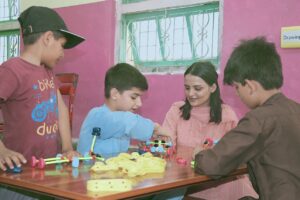The Power of Connection – SEL as a Journey
On World Mental Health Day, our Programme Officer Syeda Ansa reflects on her own personal journey to resilience, and how we embed Socio-Emotional Learning (SEL) in our work at Cities for Children.

Ansa leading one of our special playful learning activities, supporting emotional awareness and wellbeing
In a fast-paced world where daily noise can drown out our inner voices, creating space for emotional openness is essential. My journey with emotions began in childhood when I was often labelled “too sensitive.” I viewed my sensitivity as a burden, feeling different in a negative way. I experienced emotions more deeply than others but struggled to navigate them. My difficulty managing feelings affected my relationships, making it hard to connect and communicate effectively.
After university, I joined Teach for Pakistan as a teaching fellow in a remote school in Nilore. Soon I started seeing the reflection of myself in my students. One student, Aneela*, stood out—quiet but often disruptive, seemingly seeking attention. I worked to connect with her by learning about her family and building trust. Gradually, she became more attentive, engaged with peers, and started expressing herself through letters and cards for teachers and friends. This experience profoundly impacted me, highlighting the importance of creating connections and safe spaces where individuals feel comfortable expressing their emotions. It reinforced the idea that making someone feel seen and heard can unlock their true potential.
When I joined Cities for Children as a Programme Officer, what drew me to it was the way the organisation places a deep emphasis on socio-emotional learning (SEL), embedding it in every one of our signature programmes. This commitment became even more meaningful to me during my involvement with the Partners in Learning programme in FDE schools, implemented with Malala Fund support, where I provided coaching support to younger girls.
At Cities for Children, socioemotional learning (SEL) is central to our work, especially in the Seekho Sikhao Saathi programme. This initiative pairs older and younger students in a child-to-child learning model, using play-based activities to foster personal growth and connection. For younger children, it creates joyful memories that make school enjoyable, while older students develop key SEL skills like communication, confidence, and leadership.
We often spent the last 20 minutes of each session reflecting on goal-setting, lessons learned, and the overall impact of the program. During one of these discussions, a 7th-grade student shared something that stopped me in my tracks. She said, “I want to join the army because my uncle was martyred, and I want to take revenge on our enemies.” The weight of her words was overwhelming—it made me realise just how much she was struggling with her grief. For her, the only way to make sense of that pain was through vengeance.
It was a stark reminder of the emotional burdens children carry, often without the tools to process them. This experience highlighted for me the critical role SEL plays—not just in helping students articulate their feelings, but in guiding them toward healthier, more constructive ways of coping with their emotions. It reinforced why programmes like ours, which prioritise emotional learning alongside academics, are so crucial for students who are navigating complex emotional landscapes at such a young age.
In the project with Federal Directorate of Education (FDE) schools, we focused on building socioemotional skills, particularly through a session where younger students learned to identify and express emotions like happiness, sadness, and anger. The children were encouraged to present their work, share materials, and resolve conflicts with guidance from older peers. These interactions helped foster empathy, confidence, and cooperation. By the end, we saw significant improvements, with confidence and communication scores rising from 1.63 and 1.61 to 2.58 and 2.6, respectively, showing the powerful impact of SEL when supported in the right environment.
My experiences with Cities for Children have strengthened my belief in the power of socioemotional learning (SEL). By providing space for emotional expression, we empower children to understand themselves and their world, helping them recognize that their feelings matter. Ultimately, SEL is crucial for cultivating resilient, empathetic individuals who can shape a compassionate future.
I’ve witnessed firsthand how a safe, supportive environment can transform a child’s sense of self. A once-quiet student now confidently shares their work, and a child struggling with grief learns healthier ways to process their pain. These are the moments when socioemotional learning becomes more than just a part of the curriculum—it becomes the foundation for lifelong growth.
All these experiences helped me to transform what once felt like a burden into an asset that enriched my personal and professional life. This journey not only helped me embrace my sensitivity but also inspired me to help others do the same, demonstrating that emotional awareness and expression are fundamental to personal growth and resilience.
